Onstage
Conversation With Rubén Blades
|


Sponsored by the American History Museum and the Smithsonian Latino Center
Legendary Panamanian musician, composer, and actor Rubén Blades discusses his viewpoints,
memories, and experiences with curator Marvette Pérez.
Carmichael Auditorium, 1st Floor, Center
(video will be available at the Latino Center web site soon)
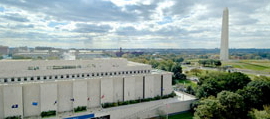
~
On
Saturday, March 27 the Panamanian singer-songwriter, Rubén
Blades was the guest of honor at the Smithsonian’s Latin Center, where
curator Marvette Pérez, who is in charge of the permanent Latin
music exhibit at this prestigious institution, greeted him. At the
Carmichael Auditorium of the National Museum of American History,
Blades participated in a lively conversation and then attended the
press’ Q&A, tackling subjects such as his musical and political
career. Blades, said that it was an honor to have been recognized by
such a prominent institution as well as to be part of select group of
Latin-American artists that include such magnificent talent as Celia
Cruz, Tito Puente, Chucho Valdés, Israel “ Cachao “ López
and Johnny Pacheco, whose stories have been told and preserved by this
organization generations to come.
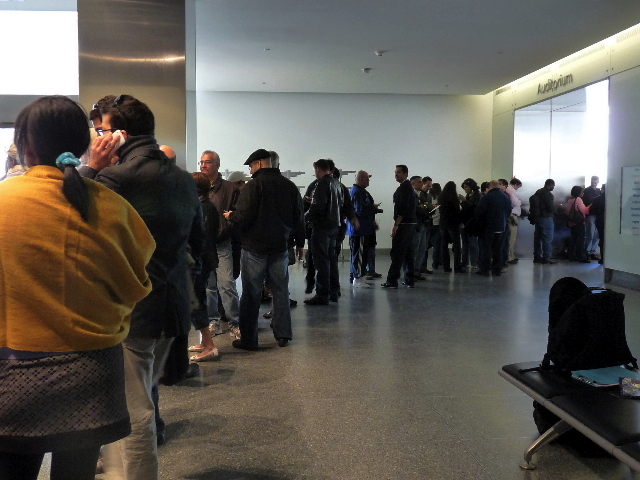
Carmichichael Auditorium
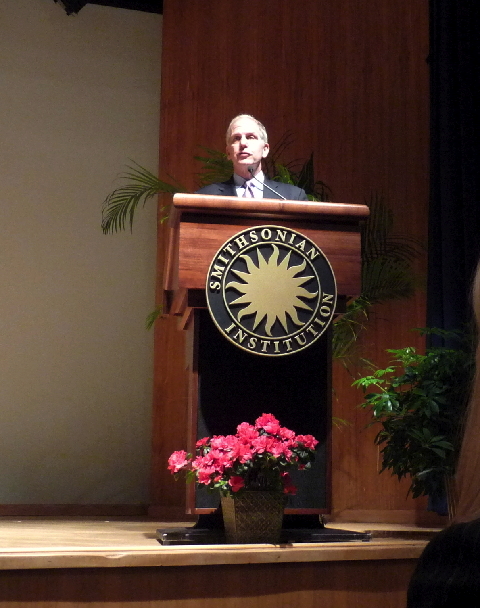
Brent D. Glass introduces the program
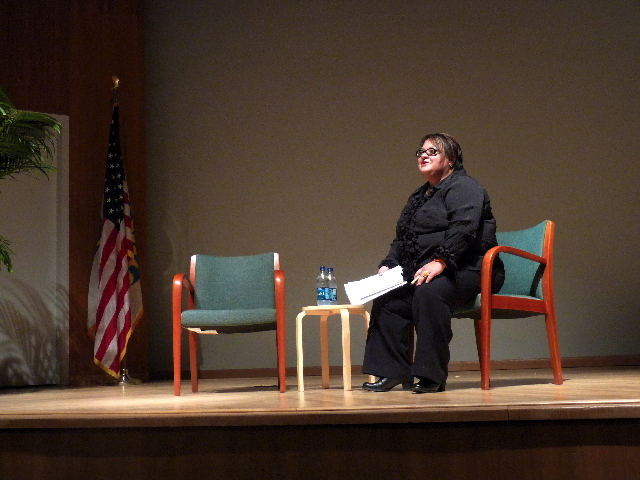
Marvette Pérez
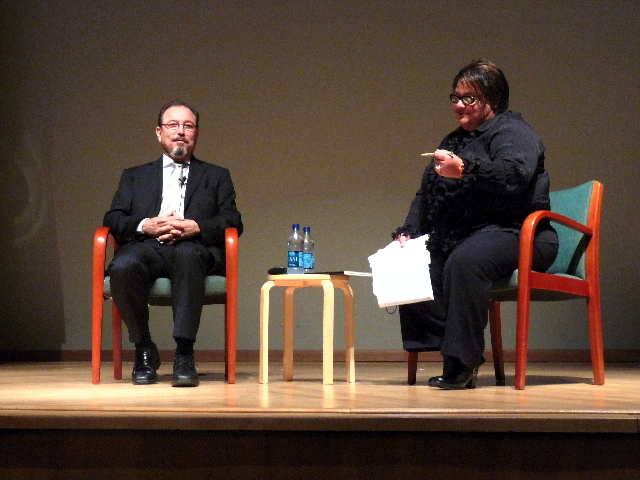
Carlotin's video Pt. 1
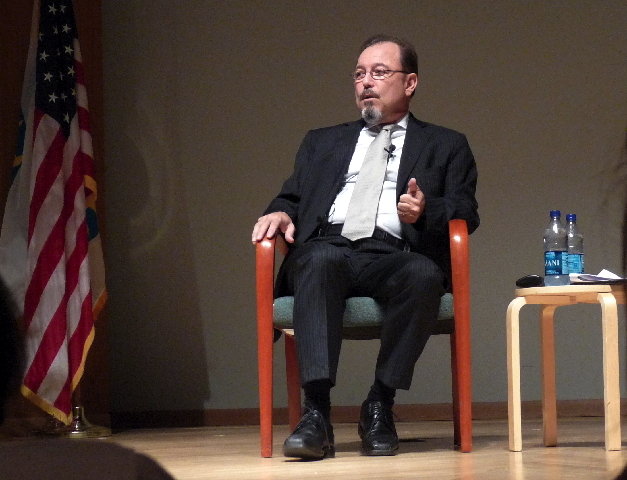
He said your heroes should be your parents and your grandparents. "If your hero is someone who doesn't know you, that's a problem."
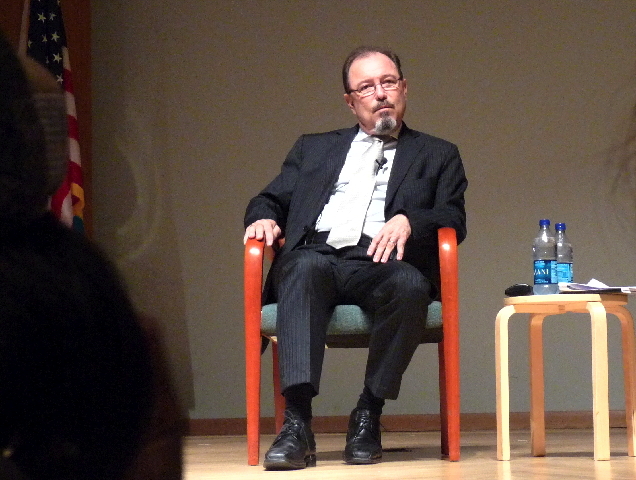
He said the university in Panama was free. It only took the will to get an education. "I've been poor twice, in two languages."
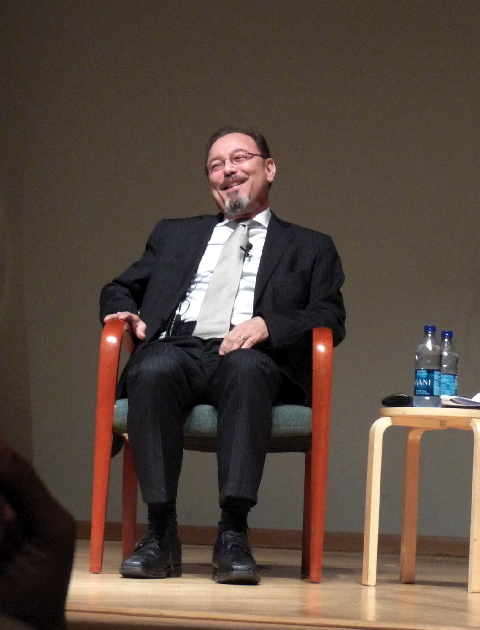
Carlotin's video Pt. 2
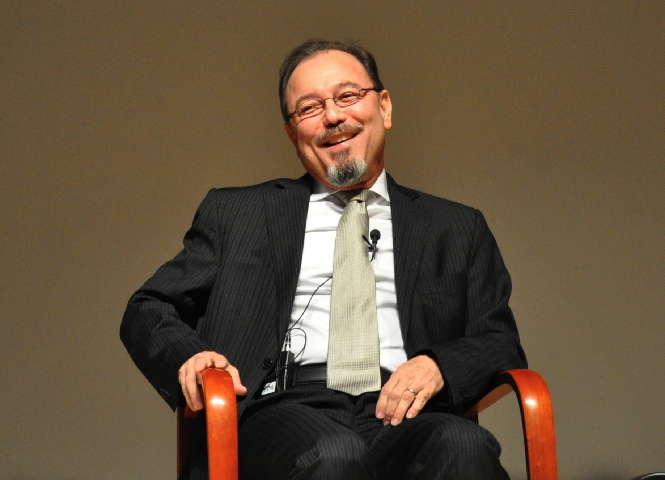
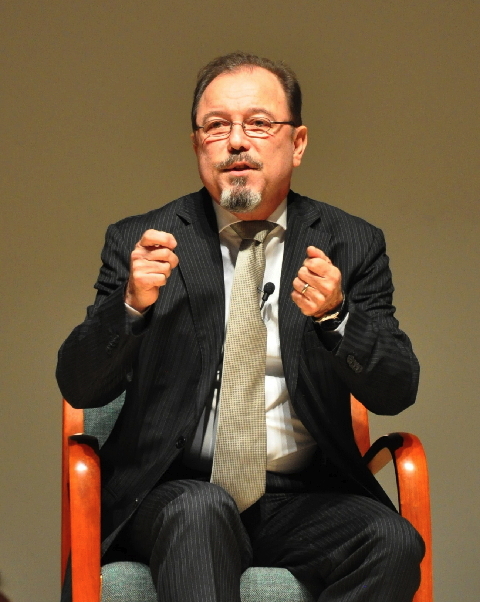
Carlotin's video Pt. 3
photo courtesy of Matt Senko
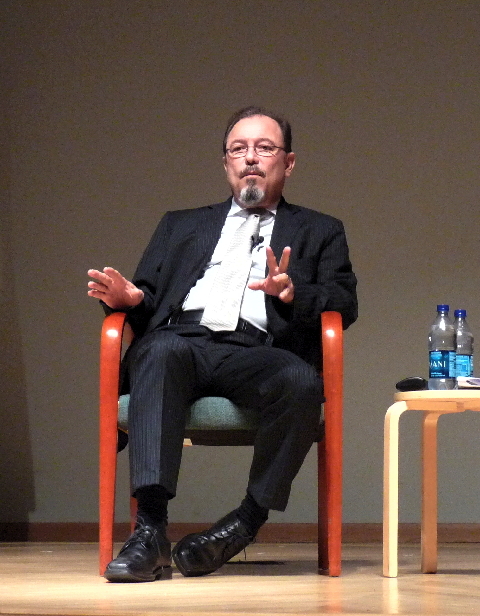
Carlotin's video Pt. 4
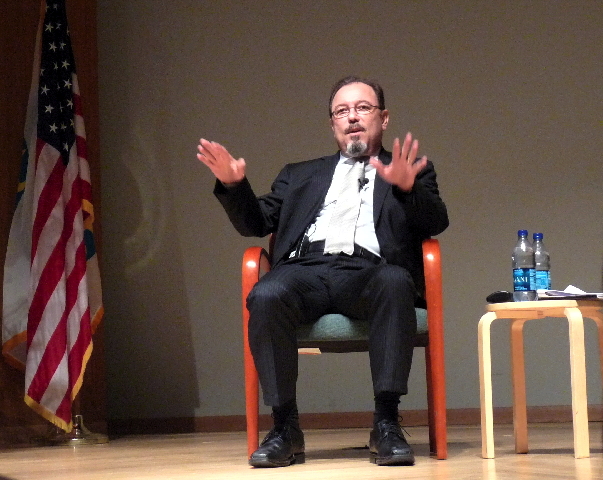
Carlotin's video Pt. 5
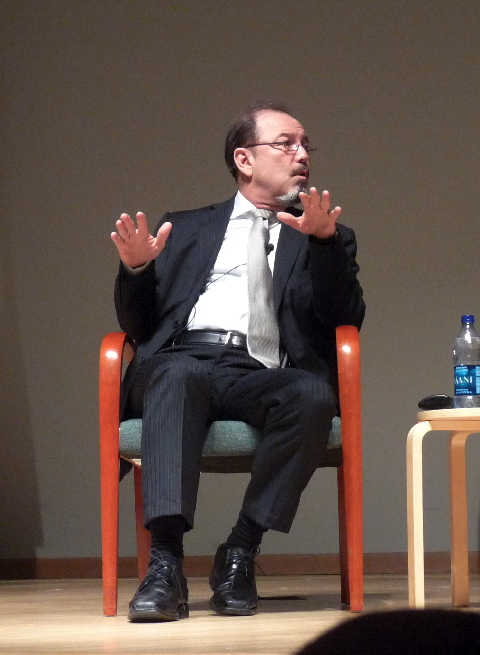
Carlotin's video Pt. 6
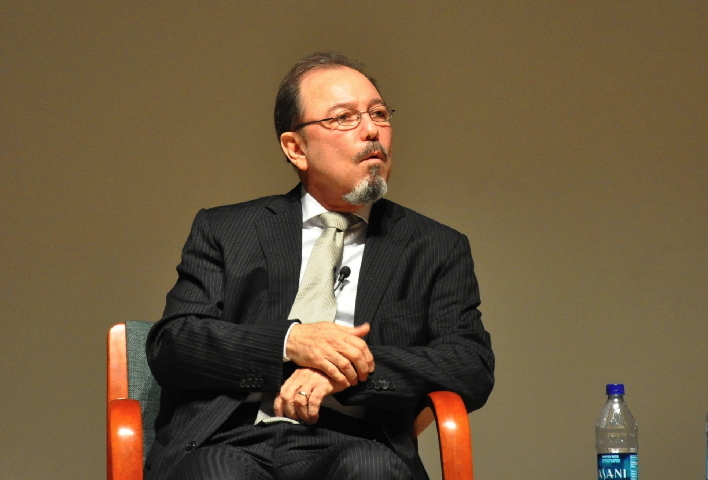
photo courtesy of Matt Senko
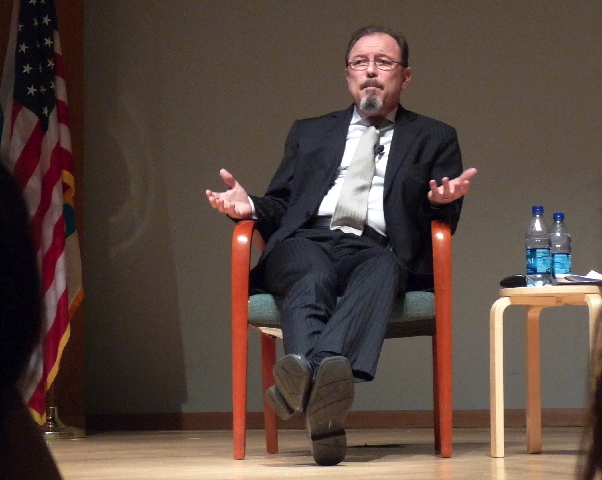
The word 'crossover' implies abandonment: "I prefer the word convergence"
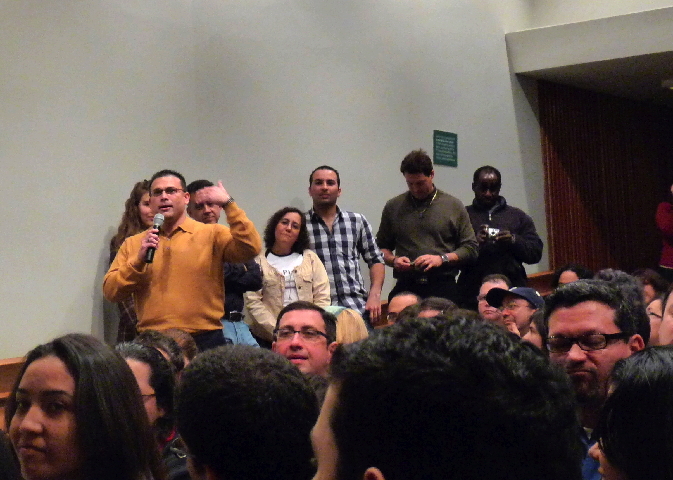
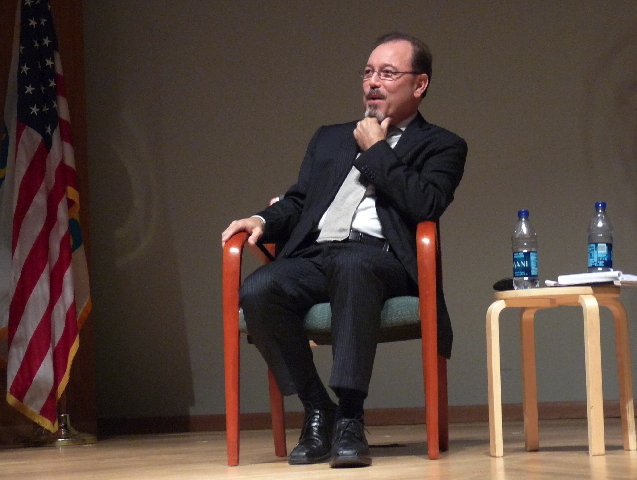
Carlotin's video Pt. 7
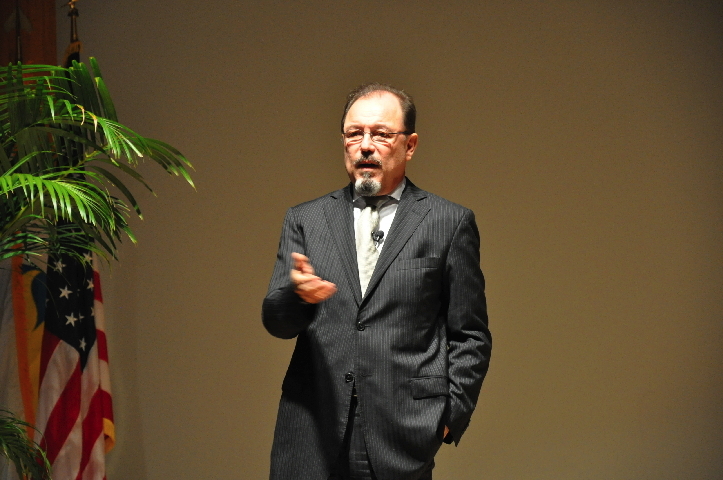
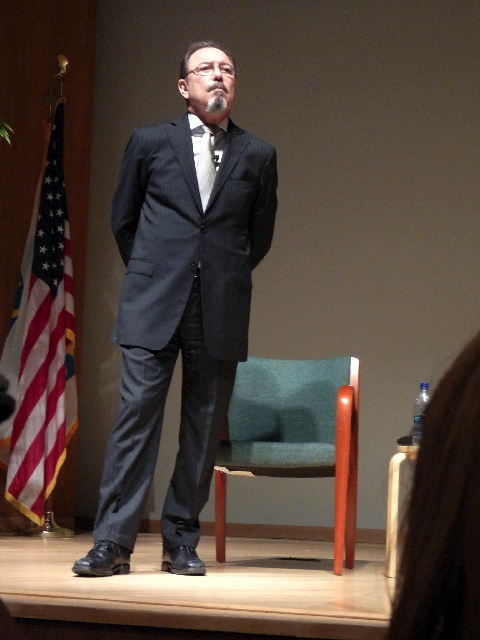
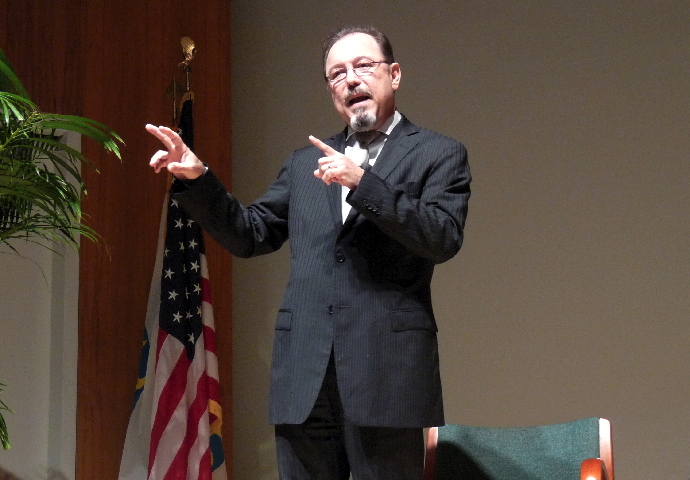
Carlotin's videp Pt. 8
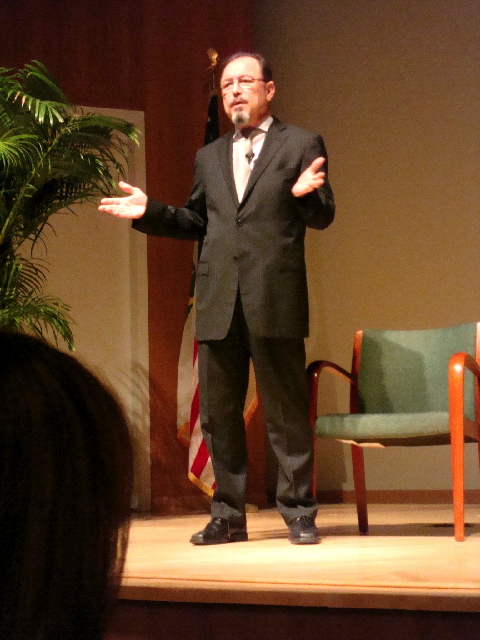
photo courtesy of Susan Walker
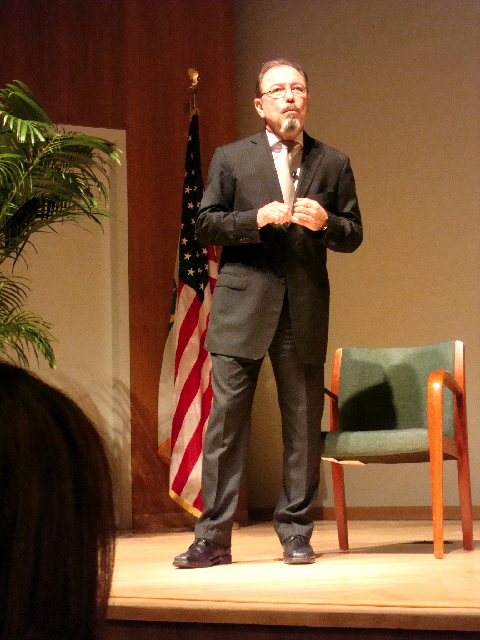
"Study!"
photo courtesy of Susan Walker
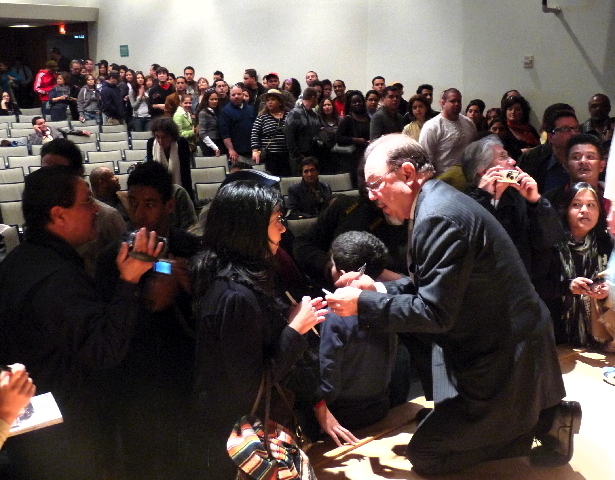
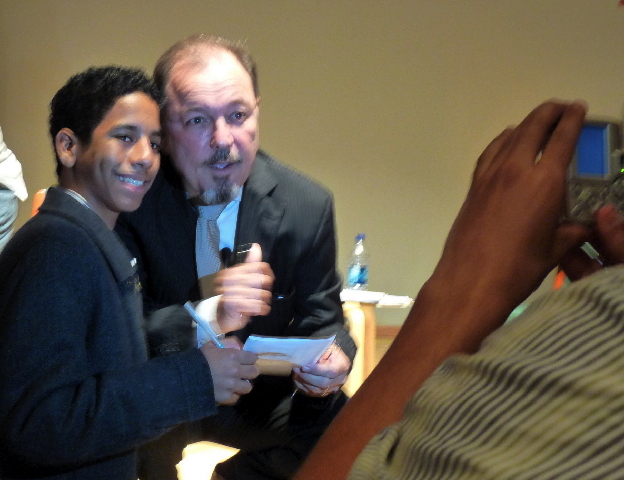
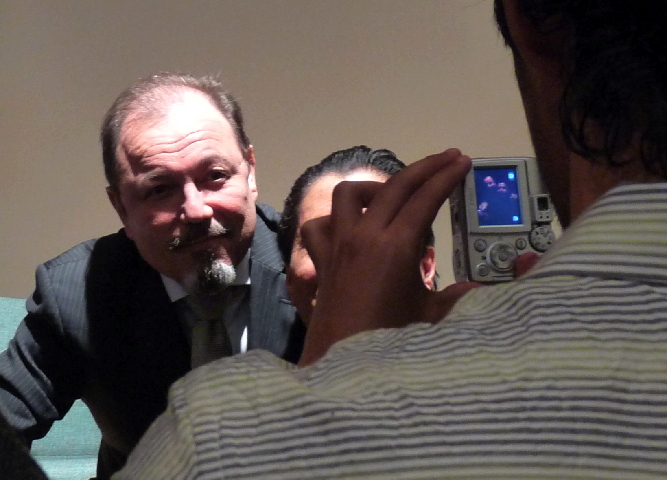
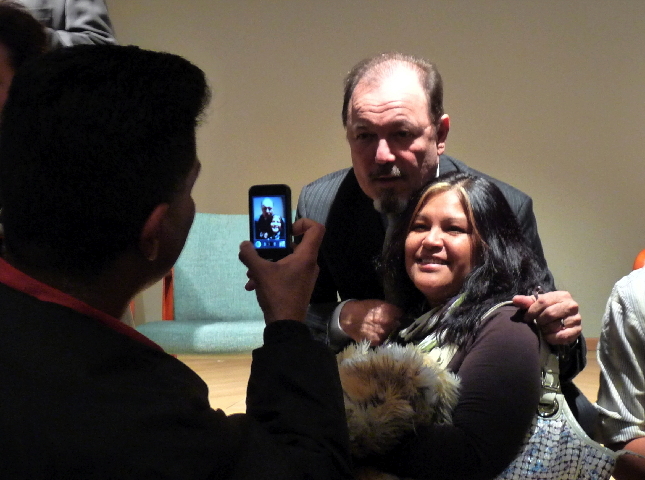
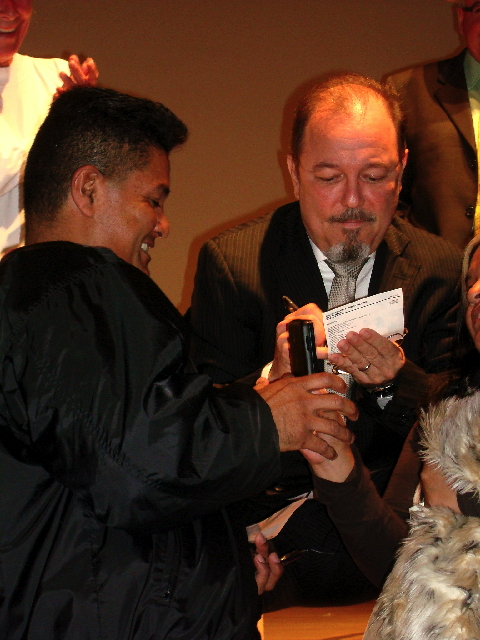
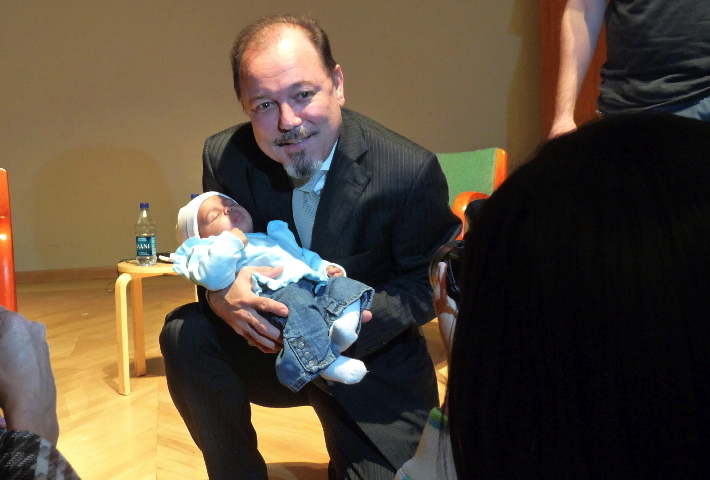
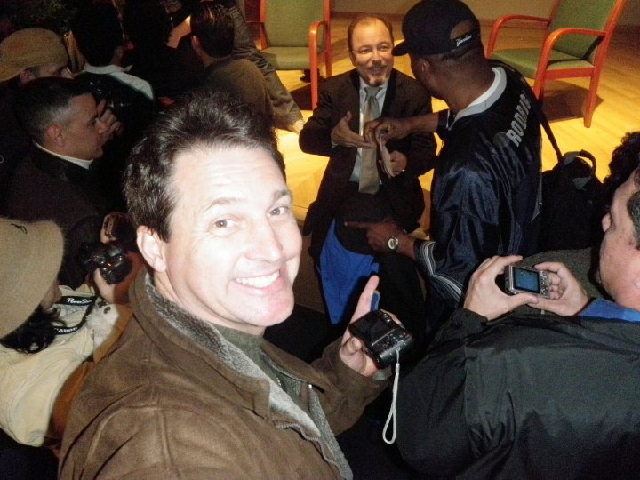
Skinnerstyle!
Acabo de regresar de Washington, D.C. donde tuve la oportunidad FANTASTICA de ver y escuchar al MAESTRO Rubén Blades dar una entrevista en el Smithsonian. Les digo, Rubén Blades es una persona sencilla, sin pretensiones de ninguna clase. Se tomó fotos con el público, firmó autografos, cargó y besó bebés, todo con una paciencia y aprecio genuino hacia todos los que vinimos a verlo. Para mi, el hecho de haber estrechado su mano y decirle lo orgullosa que me hace ser panameña, fue uno de los mejores acontecimientos de mi vida.
Rubencito: se le quiere de todo corazón.
Patria, son tantas cosas bellas! Nimia.
American History Museum ~ English ~ Español
Smithsonian Latino Center
Related exhibition: Panamanian Passages located at the S. Dillon Ripley Center
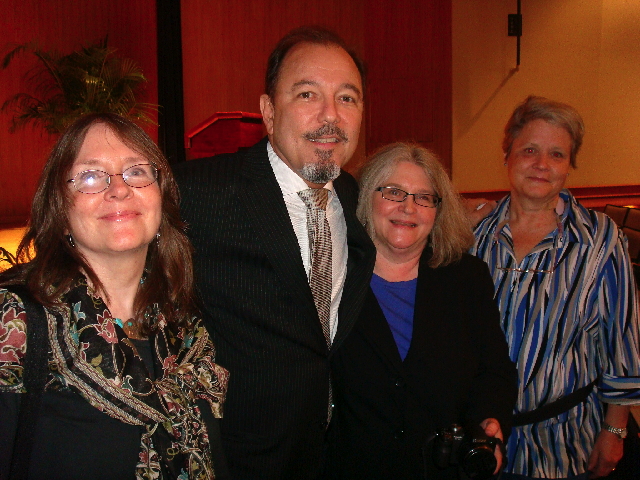
All photos unless otherwise credited
are by Alison Weinstock
Thanks to Rubén and Luba, and to my sisters Susan Walker and Kim Walker
for this photo and for a great day!
Alison
alison@maestravida.com
| |
|
||
| |
Maestravida.com Directory of Pages | ||